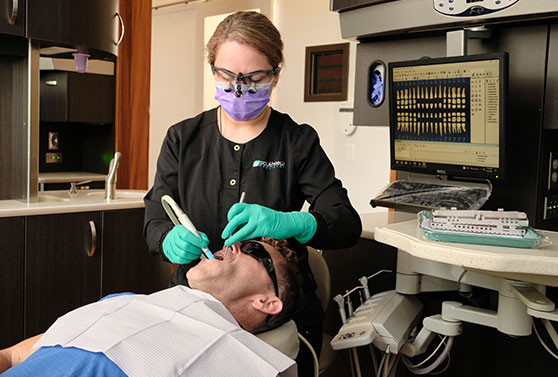Affordable and Effective Low Cost Veneers Options Available in Washington DC
Affordable and Effective Low Cost Veneers Options Available in Washington DC
Blog Article
Usual Inquiries Regarding Dental Veneers Responded To
Dental veneers have become a significantly desired choice for those wanting to improve their smiles, yet numerous people remain unsure about numerous elements of their use. Key inquiries typically occur concerning the application procedure, longevity, and prospective threats connected with these cosmetic enhancements. The difference between porcelain and composite veneers can substantially influence one's option. As we check out these common queries, it becomes necessary to consider not only the advantages yet also the ramifications of going with dental veneers in search of a much more positive look. What factors should one consider prior to making such a decision?
What Are Dental Veneers?
Dental veneers are slim, personalized coverings crafted from porcelain or composite material that are developed to cover the front surface of teeth. These oral prosthetics offer both visual and functional purposes, providing a service for various dental imperfections, including discoloration, chips, voids, and misalignment. By adhering to the teeth, veneers can considerably enhance the overall appearance of a smile, developing a more appealing and uniform appearance.
Porcelain veneers are particularly favored for their natural translucency and stain resistance, making them a suitable selection for people seeking lasting results. On the other hand, composite material veneers are typically less costly and can be applied in a single browse through, yet they might not provide the same resilience as porcelain options.
The decision to go with oral veneers typically comes from a desire for visual improvement, but individuals should also think about aspects such as the longevity of the material, maintenance demands, and the possible requirement for tooth decrease (Low Cost Veneers). Inevitably, dental veneers stand for a efficient and functional service for accomplishing a glowing smile, dealing with private cosmetic needs while advertising self-confidence and self-worth
Just How Are Veneers Applied?
The application process for veneers needs cautious preparation and precision to ensure optimal results. The procedure generally starts with a thorough consultation, where the dental expert evaluates the client's dental health, talks about desired outcomes, and establishes the appropriate sort of veneers, whether porcelain or composite material.
When the therapy strategy is established, the dental practitioner prepares the teeth by getting rid of a slim layer of enamel, generally concerning 0.5 mm to 1 mm, to accommodate the veneer. This step is vital as it ensures a correct fit and avoids the veneers from showing up bulky - Dental Veneers. After preparation, impressions of the teeth are taken to develop customized veneers that match the individual's unique dental structure and visual choices
While the long-term veneers are being made in a dental research laboratory, short-lived veneers may be put to safeguard the ready teeth. As soon as the irreversible veneers are ready, the dental professional will carefully bond them to the teeth utilizing a solid dental adhesive. Last changes are made to make certain correct alignment and bite, followed by polishing for a natural appearance. The procedure culminates in a follow-up additional resources consultation to keep an eye on the veneers' fit and the patient's fulfillment with their brand-new smile.
What Are the Advantages?

Moreover, veneers are recognized for their toughness and resistance to staining compared to natural teeth. Made from top notch materials such as porcelain or composite material, they can maintain their appearance for many years with correct treatment. This long life makes them a functional investment in one's dental appearance.
In enhancement to aesthetic enhancements, veneers can additionally add to improved oral health. By covering harmed or weakened teeth, they can offer added assistance and security, helping to stop additional decay or degeneration. This protective facet can decrease the requirement for much more comprehensive oral procedures in the future.

Just How Long Do They Last?
With appropriate care and upkeep, dental veneers can last anywhere from 10 to 15 years, making them a durable service for boosting one's smile. The durability of veneers largely relies on the material made use of, the quality of the first positioning, and the person's adherence to dental health methods.
Porcelain veneers are recognized for their toughness and resistance to staining, generally lasting closer to the 15-year mark when cared for suitably. Compound veneers, while much more budget friendly, might need replacement faster, often within 5 to one decade because of their susceptibility to put on and discoloration.

Furthermore, putting on a mouthguard throughout sporting activities or nighttime can supply added security. Eventually, while veneers supply a substantial aesthetic improvement, their longevity is dramatically influenced by the commitment to appropriate oral care and regular assessments with a dental professional.
Are There Any Type Of Risks?
Thinking about the transformative impacts of dental veneers, it is essential to recognize the prospective risks related to their application. While veneers can improve the appearance of teeth, the procedure involves the elimination of a thin layer of enamel, which can raise tooth sensitivity and webpage susceptability to decay.
One considerable danger is the possibility of incorrect positioning or fitting, resulting in discomfort, bite misalignment, and even damage to the underlying tooth framework. Furthermore, if the veneers are not maintained properly, they can come to be discolored or cracked over time, requiring replacement.
People might also experience allergies to the products made use of in the veneers, particularly if they have level of sensitivities to certain oral composites. Moreover, while veneers are resilient, they are not undestroyable; too much pressure from clinching or grinding can lead to cracks.
It is important for patients to seek advice from a qualified oral expert to evaluate their private risks and to follow aftercare directions faithfully. By recognizing these dangers, patients can make educated decisions regarding their dental veneer treatment and guarantee the long life and success of their improvements.
Verdict
In summary, dental veneers represent a beneficial cosmetic option for enhancing smiles, with factors to consider concerning their application, advantages, long life, and linked risks. Inevitably, informed decision-making relating to oral veneers can lead to satisfying visual results and improved dental wellness.
Dental veneers are slim, customized shells crafted from porcelain or composite material that are created to cover the front surface area of teeth. After prep work, impacts of the teeth are taken to develop custom-made veneers that match the person's one-of-a-kind dental structure and visual choices.
While the permanent veneers are being produced in an oral lab, short-lived veneers may be placed to secure the prepared teeth. When the irreversible veneers are prepared, the dentist will thoroughly bond them to the teeth utilizing a strong oral adhesive. Eventually, informed decision-making relating to dental veneers can lead to sufficient visual outcomes and enhanced dental wellness.
Report this page